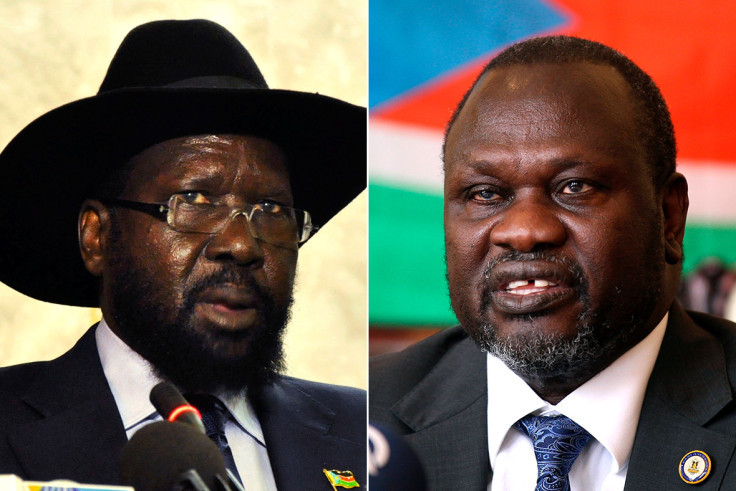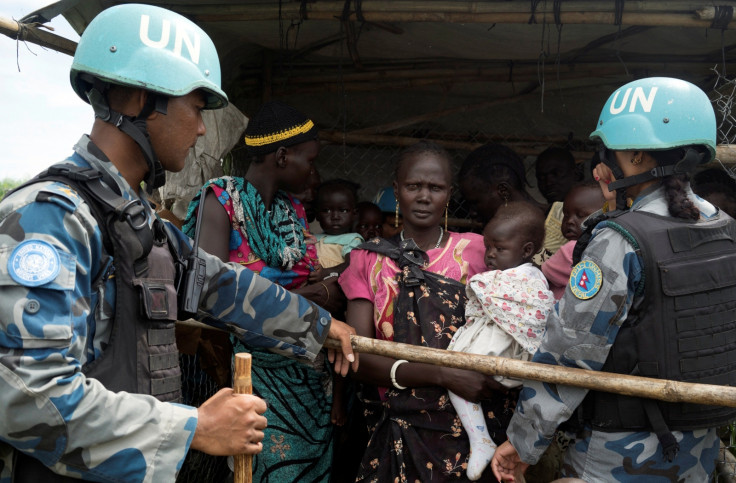South Sudan's rebel leader Riek Machar 'ready to go home'
EXCLUSIVE: IBTimes UK speaks with rebel leader and ousted vice-president on conflict in South Sudan.

South Sudanese rebel leader and ousted vice-president Riek Machar has told IBTimes UK he is ready to go home. Speaking on the phone from South Africa, where it is believed he received medical treatment, Machar said he is willing to return to South Sudan and work with the government to ensure peace is restored in the war-torn country.
"South Sudan is home. South Sudan is not Juba, we have liberated some areas and I would stay in those liberated areas. I am currently in South Africa where I received medical treatment and I am ready to go back," Machar, who leads the opposing faction Sudan People's Liberation Movement-in-Opposition (SPLM-IO), said.
Machar, who did not disclose the reasons why he received medical treatment, also alleged the government does not want to implement the peace agreement.
Sabit A Alley, South Sudanese ambassador to the UK, told IBTimes UK Machar's claims were baseless.
"The government remains committed to the full implementation of the Peace Agreement. How can Machar claim that he is committed to the peace deal when he has again declared fresh war on the government?" he said.
South Sudan became the world's newest nation when it declared independence from Sudan in 2011.
However, the country descended into civil war in 2013, when President Salva Kiir – of the Dinka ethnic group – fired his deputy Machar, from the Nuer group, and his cabinet.
Ethnic-related violence spread, with militia groups carrying out attacks in villages and areas known to be inhabited by either the Dinka or Nuer tribes.
Machar originally left South Sudan in 2013. His return and his reinstatement as vice president in April 2016 had restored hopes for the implementation of the peace process. However, Machar fled again following deadly fighting that left at least 300 people dead in Juba in July.
The rebel leader accused government forces of opening fire on his troops, and said he would return to the capital once a third-party force was deployed to ensure his and his officials' safety. He was replaced by Taban Deng Gai, a former ally of his.
An estimated 50,000 people have been killed, hundreds of thousands are either facing starvation in the country or have fled, amid allegations of crimes against humanity committed by both sides, including rape, torture and the use of child soldiers.
Power sharing
Kiir and Machar have agreed on several peace deals – the last of which was signed in August 2015 – but have failed to control their troops, who have broken every ceasefire signed since 2014.
Although some people claimed power-sharing is no longer a solution for South Sudan, Machar believes the latest peace deal could save his country.
"Power sharing is part of the agreement and we want to implement it. It should work if there is political will," he said. "Fighting is going on. The first thing to do is to initiate a political process and foster a political engagement between warring parties. There are issues that have to be addressed in the peace agreement. Security and power-sharing arrangements need to be reviewed because lots of things have happened since July. The dynamics of the war have changed and the conflict has now spread to other areas."

Government's response
South Sudan has often blamed Machar, and the opposition still loyal to him, for the ongoing unrest and failure to implement the peace deal signed.
"The major obstacles to the implementation of the peace deal rest primarily on the lack of commitment on the part of Riek's SPLM-IO, disagreements on some key clauses such as the cantonment areas, the continuous violations of the ceasefire by the opposition and the inherent flaws in the Peace Agreement itself," Alley told IBTimes UK earlier this year.
Previously, Alley told IBTimes UK the peace agreement was about the fate of the country, not about Machar and his replacement was "in accordance with Article 6.4 of the Agreement on the Resolution of the Conflict in the Republic of South Sudan."
Alley added Gai had been working hard to ensure the implementation of the peace deal and promote economic boost.
© Copyright IBTimes 2025. All rights reserved.






















